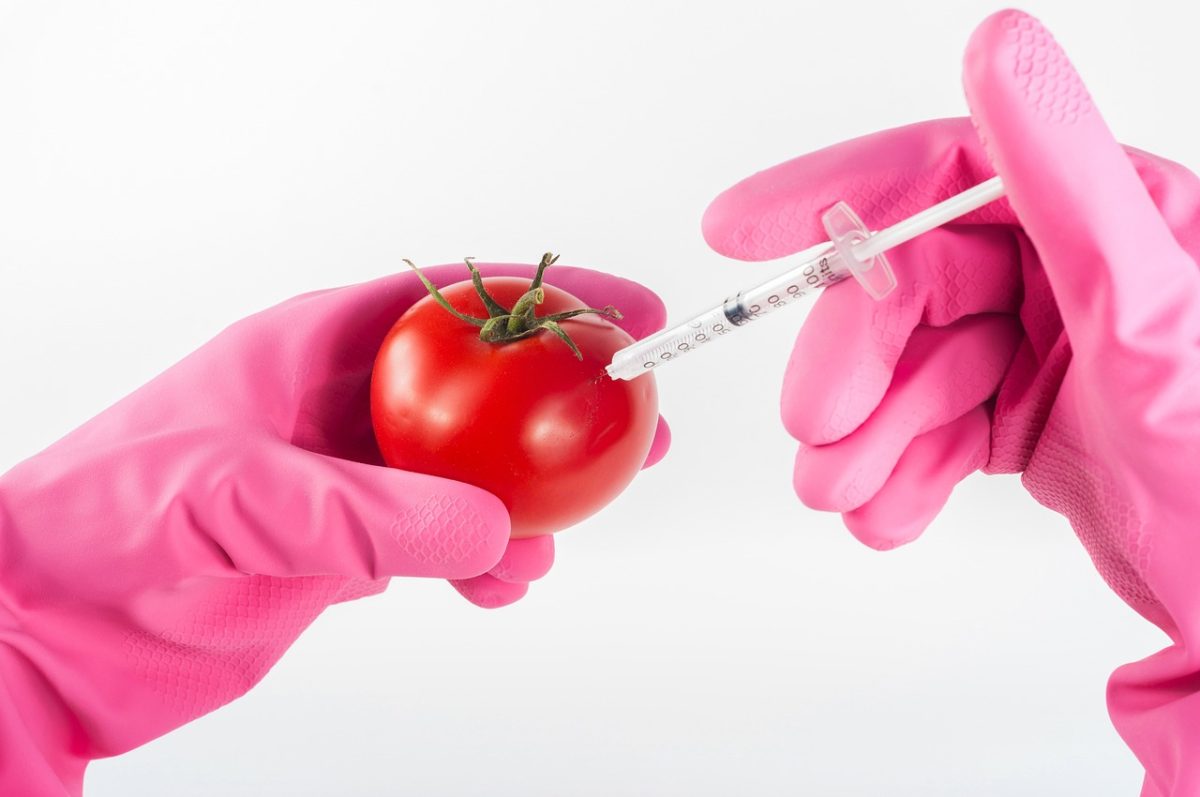I used to walk the produce aisles of our local grocery store with my mother, watching her gently turn each lemon, orange, and cucumber around in circles, analyzing every piece of produce to ensure that each was firm and shiny. With bright eyes and an everlasting desire to be helpful, I noticed a cornucopia of perfect-looking genetically modified produce. What I didn’t realize was that the word “organic” loomed over our shopping list, strictly filtering what we should and shouldn’t buy. At that moment, my perception of the once-vibrant cornucopia was shattered, and it no longer symbolized a sanctuary of fresh, healthy produce.
For many families today, resistance towards buying Genetically Modified Foods, or GMFs, is a common occurrence, largely due to the stigmas surrounding the genetic modification of produce. According to Michael Kamiya, a papaya farmer in Oahu, genetically modifying foods make farming much easier—they reduce the risk of disease on plants, while still producing a healthy crop. However, Kamiya has been met by local opposition who are against the use of pesticides. Is the opposition justifiable?
Those who are “anti-GMF” may believe so because they feel as if GMFs affect their bodies and the environment negatively. In reality, this belief may not be the case. Currently, there is no evidence to show that GMFs have different effects on your body than organic produce does. However, people may believe so because it makes sense to them. Humans have tendencies to shy from substances that may harm them—a phenomenon known as the “pathogen avoidance mechanism.” Those who are “anti-GMFs” may believe that GMFs are contaminated, and therefore forgo them out of fear.
Although the modification of produce allows for insecticides to be used harming the produce, it is commonly believed that this allows for adverse effects on the environment. This is a misconception—as countries across the globe started to welcome GMFs, the aggregate amount of insecticides decreased.
The stigmatization of GMFs also works against issues such as world hunger—by banning genetically modified produce, countries start to fall behind on production, and therefore lose to competition who can grow increasingly resistant and healthier genetically modified crops, further causing organic farmers to lose profits. The price of organic produce compared to genetically modified produce is vastly different, with organic eggs costing up to 82% more.
For those who cannot afford to pay an ~82% premium for a food staple, GMFs offer an alternative that can make buying produce an affordable task in a country where inflation in the past year alone has increased the average price of food by up to 11%.
So, have no fear. Take advantage of the cornucopia.


